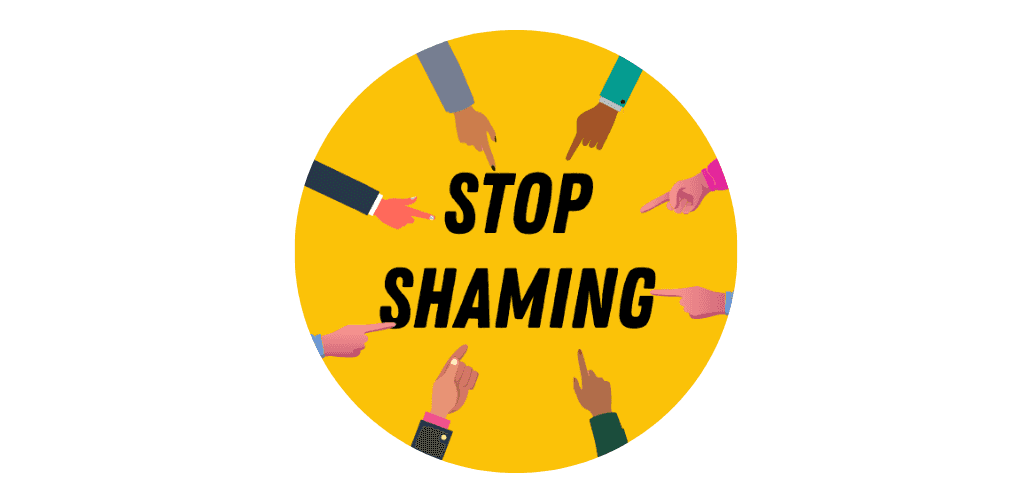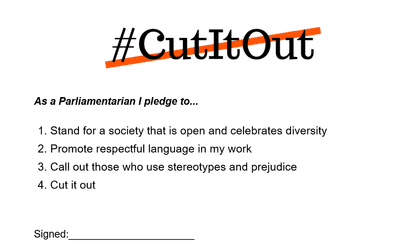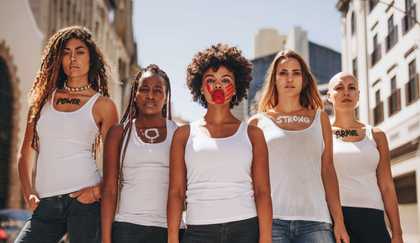Stop Shaming
Public shaming has become a persistent problem with the rise of social media platforms

Introduction
The idea of public shaming has been around for centuries, but technology and social media has taken it to new heights
Many people are aware of the various forms of public shame, even if this is not the term that is broadly used, such as fat shaming and body shaming. The rise of social media and media outlets has allowed shaming to persist and become normalised. An example of this are the derogatory comments and articles about celebrities’ weight gain and body types.
This concept of public shaming and humiliation is not new but is a concept that has been around for centuries in various guises. For example, the shaming of offenders has been in existence since the late 18th century; it was a form of correction that was used to serve justice by offenders who had committed criminal acts. Offenders who had committed crimes against persons or property were likely to be handed a sentence of shaming in lieu of serving a sentence in a cell or incapacitated place. Popular methods of late 18th century shaming included the whipping post, the pillory, stocks, branding, banishment and the dunking stool. All of these devices were used as a form of public shaming in order to humiliate the individual.
Women in particular have been the victims of public shaming. In the 16th and 17th-century in Europe, tens of thousands of women were rounded up and slaughtered for being different, non-conforming or outcasts in some of the earliest witch hunts.
This short briefing looks at the recent rise in the use of social media platforms by Irish Travellers to create ‘shame pages’ to humiliate and publicly shame members of their own community. In response to this we have developed a specific project and campaign to challenge this inappropriate practice of public shaming.
Read more here
#Stop Shaming Campaign
The shame of shaming – time for honest conversations by Christina Kerrigan, Traveller Movement Community Development and Partnerships Officer
The suicide rate among the Traveller communities is extraordinarily high, in comparison to the wider UK population. Hearing more and more, that people have ended their lives because of the shame they felt over their sexuality has been a real eye opener for me. People have had to suppress who they really are due to fear that not only could this truth cause shame or harm to them, but that they their family could also face the wider repercussions from those in the community who do not accept it. There are many Travellers who do not believe that homosexuality is natural, instead they think that the devil has got into these individuals. As a result, some are being dragged across the country to healing people and Holy wells in an attempt to ‘cure’ them. Others are turning to faith groups to justify their prejudice, and we have worked with young, vulnerable people who have been further damaged by this.
Religion often plays a big part in Traveller lives, from sexuality to gender roles. The expectation in some families, is that the man will have a dominant role and the woman should be pure, respectable and have no sexual relationships before marriage. You would hope that when a woman does get married and chooses to share her life with this man, that their love is built on mutual respect, however, sadly this is not always the case. Who and where do these women turn to when they are married and suffering domestic abuse? When they are being controlled, hurt and humiliated? When they are suffering mental health issues at a young age but are afraid to speak to a doctor? Afraid because they are told that their children will be taken by social services if they hear they are in a violent relationship or not coping as a Mother.
I believe some Travellers get married too young. Too young to know if this is what you want for the rest of your life. Too young, naive and sometimes uneducated to understand the responsibilities and pressures that will come. Sadly, some families do not believe in divorce and believe it’s a moral sin. As the old saying goes ‘you made your bed now lay in it’. It’s sad because as a Traveller woman in this situation it seems in your mind so much easier to take your own life than to leave your husband. When you leave him, you can lose your community, your respect and your name, and that is what you lose when you can leave. A lot of time leaving is impossible and the thought of social services being involved in your family makes you a failure as a mother.
Suicide rates are through the roof and many of these are no doubt influenced by experiences of shaming. Whether it is because of a person’s sexuality, or if it is a young girl who “got a name for herself” and ends her own life, all because of the shame they are made to feel by their own people. This is not to say that people cannot have their own beliefs and values, it is that it is damaging to impose these beliefs and values on others. We all have a limit and when that limit is breached, we hurt. This limit can manifest itself in self-medication, whether through alcohol, prescription or illegal drugs and at worst self-harm and suicide. Is this really where we want to be going? Have enough of our people not already died before their time? Has shaming not already done enough harm?
The shaming that goes on in our community, which results in the suicides of many, is our biggest shame. It is no longer enough for us to cry and share rants of rage on Facebook when we find our young people hanging at the end of a rope or slipping away from us on an overdose of drugs. Instead we must stop and think about how we are contributing to this cycle of shame. How we may inadvertently be handing these people the rope to take their own lives.
Shaming needs to stop!

